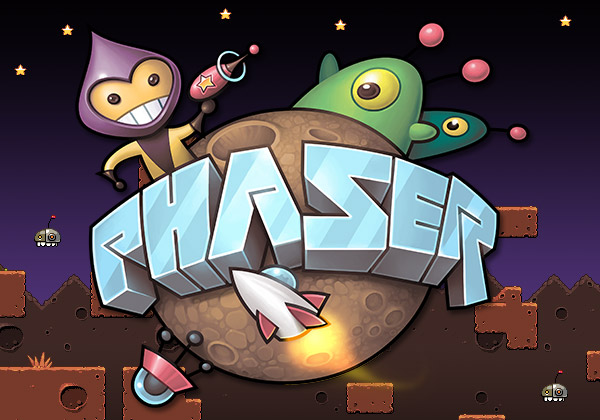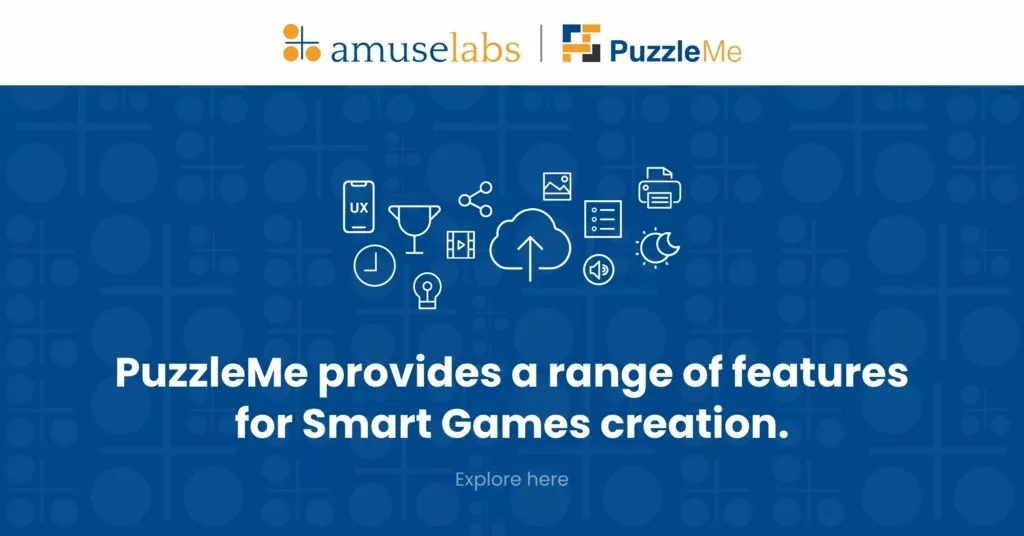In the fast-paced world of game development, where innovation meets tight deadlines and complex project management, enterprise game development software has become the backbone of successful studios.
But what exactly is enterprise game development software, and why is it crucial for today’s game creators?
Enterprise game development software refers to comprehensive, scalable, and feature-rich platforms that support the entire game development lifecycle. They’re built to handle the complexities of large-scale projects, multi-team coordination, and the demands of creating games for a global audience. Therefore, choosing a fail-proof enterprise game development software is an important decision.
If you’re looking for an enterprise ready builder, consider using PuzzleMe and experience hassle-free game creation. It is a one-stop solution to create customizable smart games with a diverse toolkit. Make your own game for free now!
Enterprise Game Development Software: 5 Fail-Safe Choices
In this article, we’ll explore some of the most reliable choices in enterprise game development software, examining their features, strengths, and the value they bring to modern game creation.
Whether you’re a growing indie studio looking to scale up or an established AAA developer seeking to optimize your pipeline, understanding these options is crucial for staying competitive in today’s gaming industry.
1. Unity: The Jack of All Trades
 Unity is a versatile, cross-platform game engine that supports 2D and 3D game development. It offers a visual editor, powerful scripting capabilities, and a vast asset store. This powerhouse has been the backbone of countless successful games across a staggering array of platforms.
Unity is a versatile, cross-platform game engine that supports 2D and 3D game development. It offers a visual editor, powerful scripting capabilities, and a vast asset store. This powerhouse has been the backbone of countless successful games across a staggering array of platforms.
The Unity Gaming Report 2023 reveals that the number of games developed with Unity has surged by 93% over the past year, with over 230,000 developers managing more than 750,000 games on the platform.
What makes Unity shine:
- Cross-platform development with smooth integration
- A rich ecosystem with the Asset Store offering a plethora of resources
- Powerful yet accessible C# scripting
- Excellent documentation and a massive, supportive community
- Cutting-edge features like real-time ray tracing and data-oriented tech stack (DOTS)
Unity’s not just for the little guys. Industry titans have leveraged its power to create blockbuster hits. Remember the Pokémon Go craze? That was Unity in action. Hearthstone, the digital card game juggernaut? Unity again.
Pricing-wise, Unity offers a tiered system that caters to everyone from hobbyists to large enterprises, Check out it here:
- Personal, Student, Educator: Free (with some limitations)
- Pro: $185/month
- Enterprise: Custom pricing for those big-budget projects
The best part? You can start for free and scale up as your needs grow. It’s like having a development partner that grows with you.
2. Blender: The Open-Source Odyssey
Blender might seem like the odd one out in this list. “Wait,” you might say, “isn’t that just for 3D modeling?” Well, prepare to be amazed by this enterprise game development software.
Blender’s hidden talents:
- Completely free and open-source (yes, even for commercial use!)
- World-class 3D modeling, texturing, and animation tools
- A built-in video editor and compositor
- Python scripting support for custom tool development
- Physics and particle simulation capabilities
While Blender isn’t a traditional game engine, it’s an invaluable tool in any game developer’s arsenal. Its ability to create high-quality 3D assets, animations, and even entire short films makes it a crucial part of many development pipelines. Even industry giants like Ubisoft use Blender in their workflows.
Interestingly, Blender was used for visual Effects for the Indian blockbuster movie “RRR”. Role, Animation, Action!
And let’s talk about that price tag again – it’s free. Always has been, always will be. In a world where software costs can quickly spiral out of control, Blender stands as a perfect option to make your own game for free.
3. Unreal Engine: The Graphics Guru
When it comes to pushing the boundaries of visual fidelity in games, Unreal Engine is often the first name that comes to mind. Epic Games’ flagship software has been behind some of the most visually stunning games of the past decade.
Unreal’s claim to fame:
- Blueprint visual scripting system (coding optional!)
- Cutting-edge graphics capabilities, including real-time global illumination
- Robust physics engine for realistic interactions
- Powerful cinematic tools for in-game cutscenes
- Large marketplace for assets and plugins
- Built-in VR development tools
Unreal Engine isn’t just about pretty graphics, though. Its Blueprint system has revolutionized game development, allowing designers to prototype and even build entire games without writing a single line of code. This democratization of game development has led to an explosion of creativity in the industry. Notable games built with Unreal are Fortnite, and Final Fantasy VII Remake.
Epic Games have shown off Unreal Engine 5 capabilities through a PS5 Real-Time Demo. Imagine incorporating the beauty in this footage with Remake Part 2! Hooo boy
byu/theblobberworm inFinalFantasy
Unreal’s pricing model is developer friendly. It is a free game making software to use; however, Epic takes a 5% royalty on gross revenue after your game makes its first $1 million. For large enterprises, custom licensing options are available.
4. Solar 2D/Corona SDK : The Cross-Platform Development Dynamo
Originally known as Corona SDK, this powerful framework rebranded to Solar2D in 2020. Despite the name change, this game development software has maintained its position as a go-to solution for 2D game and app development across multiple platforms.
What makes Solar2D stand out:
- Lua-based scripting language, known for its simplicity and efficiency
- True cross-platform development for iOS, Android, desktop, and web
- Built-in physics engine (Box2D)
- Robust plugin ecosystem
- Live reloading for rapid development and testing
- Simplified API for quick learning and development
Here is a simple tutorial for creating a game in Solar2D:
Solar2D has been used to create a diverse range of applications, from casual games to educational tools. Remember “Fun Run“? A multiplayer racing game with over 100 million downloads was made with Solar2D.
Let’s talk pricing. As of its rebranding, Solar2D became completely free and open-source, making it an attractive option for indie developers and small studios.
5. Phaser: The JavaScript Game Player

When it comes to creating browser-based games quickly and efficiently, Phaser stands out as a top contender. This open-source HTML5 game framework has been making waves in the web game development community since its release in 2013.
Phaser, currently in its third major iteration (Phaser 3), is a fast, free, and fun open-source framework for Canvas and WebGL-powered browser games.
What makes Phaser shine:
- Built for modern browsers, supporting both WebGL and Canvas rendering
- Robust physics engines (Arcade Physics, Matter.js, and P2)
- Extensive documentation and active community support
- Powerful animation system
- Built-in asset loading and sound management
- Mobile-friendly with touch and scaling support
Phaser is particularly appealing for developers who are already familiar with JavaScript, as it allows them to leverage their existing skills to create engaging games without learning a completely new language or environment. Some notable successes include Prodigy, a math education game with millions of users.
Like many open-source projects, Phaser is completely free to use, even for commercial projects. The core framework is available under the MIT license, giving developers the freedom to use, modify, and distribute their Phaser-based games as they see fit.
Factors to Consider When Choosing
Selecting the right enterprise game development software is a critical decision that can significantly impact your project’s success. As you navigate through the myriad of options available, consider these key factors to ensure you make an informed choice that aligns with your project needs and team capabilities.
1. Project Scope
The scope of your project plays a crucial role in determining the most suitable development software. Consider:
- Scale: Is this a small indie game or a large, complex AAA title?
- Timeline: What’s your development timeframe?
- Team Size: How many developers will be working on the project simultaneously?
For larger, more complex projects, you may need a comprehensive solution that offers robust collaboration tools and scalable infrastructure. This is where enterprise-level solutions like can shine, providing the necessary tools to manage large-scale development efficiently. For projects requiring complex functionality, it’s often essential to hire a C# developer to ensure efficient development, maintain code quality, and meet project goals effectively.
2. Specific Game Genre or Platform Requirements
Different genres and platforms have unique requirements:
- 2D vs 3D: Some engines specialize in 2D development (Phaser, Solar 2D) , while others excel in 3D environments (Unity, Blender).
- Mobile vs Console vs PC: Each platform has its own set of challenges and optimizations.
- VR/AR Support: If you’re developing for virtual or augmented reality, you’ll need software with strong VR/AR capabilities.
3. Budget Constraints
Budget is often a deciding factor in software selection. Consider:
- Licensing Costs: Some software requires substantial upfront investment or ongoing licensing fees.
- Revenue Sharing: Some engines take a percentage of your game’s revenue.
- Hardware Requirements: More powerful software might require upgrades to your development hardware.
While open-source options might seem appealing for tight budgets, consider the long-term cost-effectiveness of premium enterprise game development software, which can streamline development and potentially reduce overall project costs.
4. Team’s Technical Expertise
Your team’s skills and experience should heavily influence your choice:
- Programming Language: Does the software use a language your team is familiar with?
- Learning Curve: How long will it take for your team to become proficient with the new software?
- Support and Documentation: Is there adequate support and resources available for your team to troubleshoot issues?
Having multidimensional gaming software is of little use if the technical team cannot use it to its maximum potential. Hence, gauging the team’s expertise is very important.
Enterprise Ready Game Builder
All well said and done, it is not always possible to find the skills and the time to put into enterprise game development software for your specific needs. In the fast-paced world of game development, time is the key to success. We need platforms to streamline processes, reduce time-to-market, and create engaging content without the need for extensive coding expertise.

Therefore, there are software like PuzzleMe that provide a user-friendly no-code interface to create, customize, distribute, and track your games. It is an enterprise-ready game builder that is your one-stop solution for all use cases, from interactive games to wedding crosswords.
Trusted by industry leaders like The New Yorker and the Morning Brew PuzzleMe stands as the best platform for smart games like crossword, sudoku, word search, codeword, custom wordle, and many more. Make your own game for free now!
- How to Start Your Own Jigsaw Puzzle Blog - April 16, 2025
- How to Host a Jigsaw Puzzle Competition Online - March 20, 2025
- Add Games to Squarespace: All You Need to Know - January 9, 2025